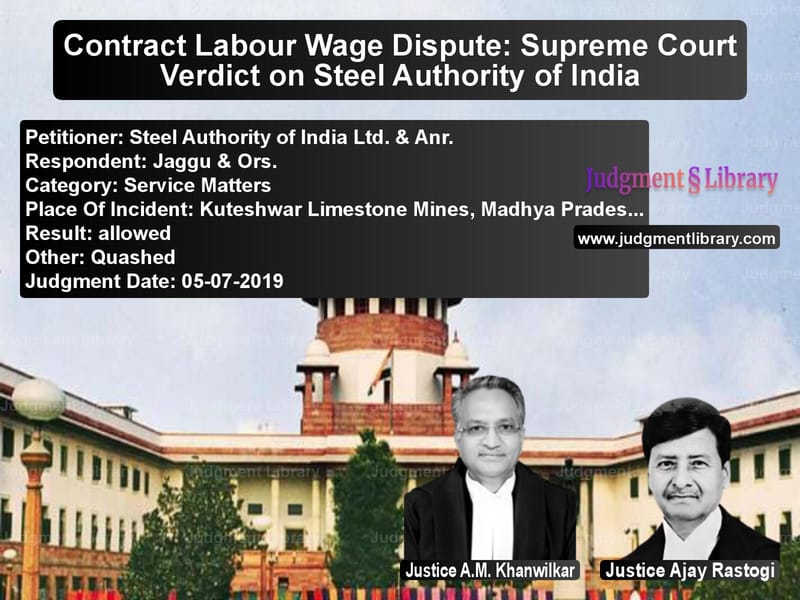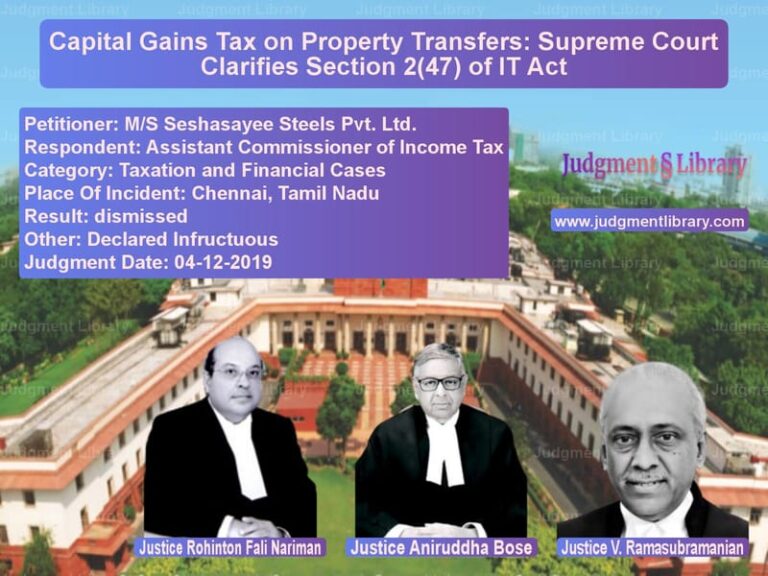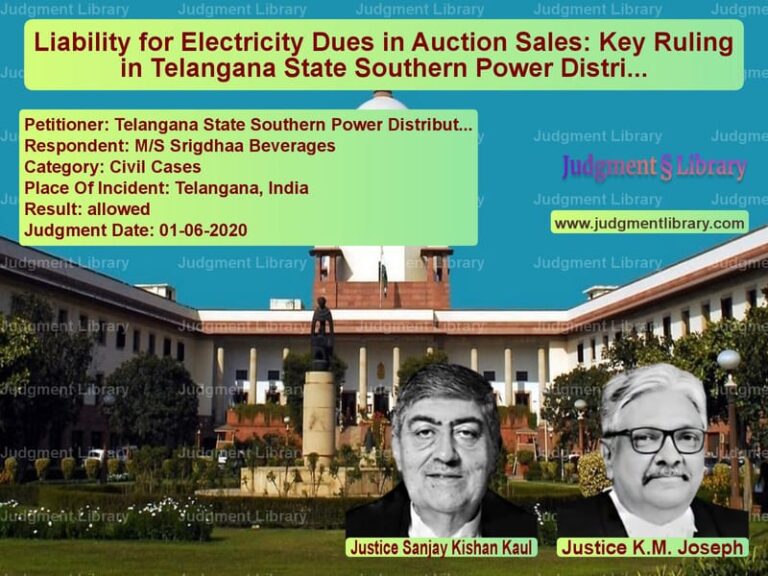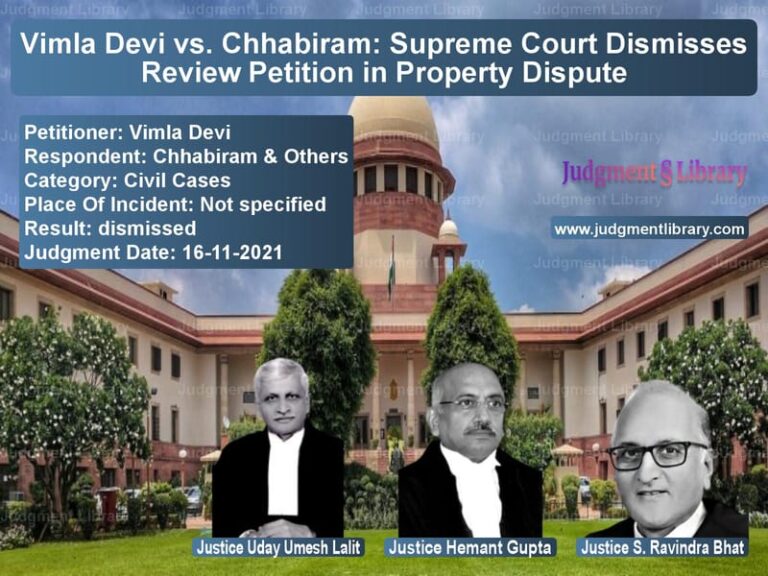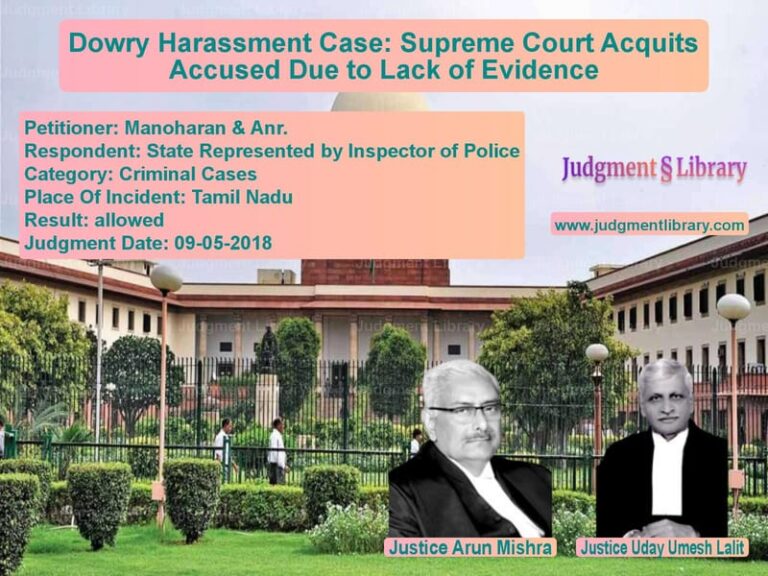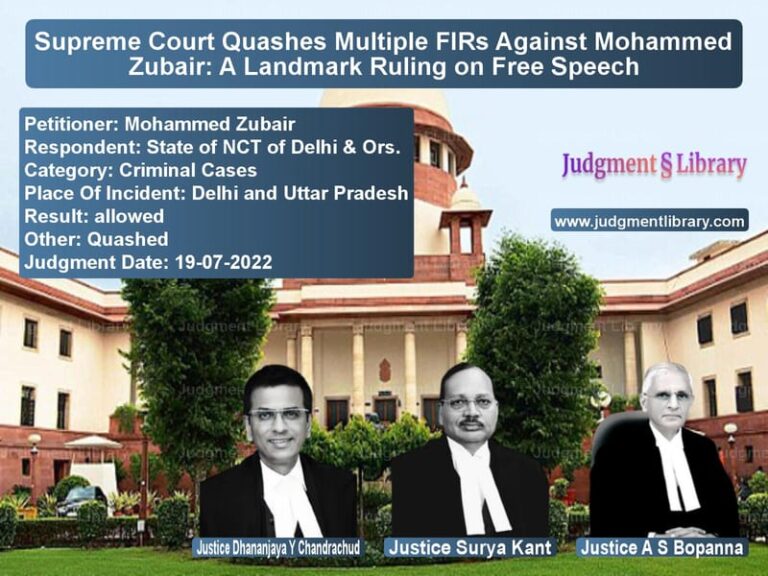Contract Labour Wage Dispute: Supreme Court Verdict on Steel Authority of India
The case of Steel Authority of India Ltd. & Anr. v. Jaggu & Ors. revolves around the claim for regularization and minimum wage parity made by contract labourers employed at the Kuteshwar Limestone Mines of Steel Authority of India Ltd. (SAIL). The Supreme Court had to decide whether these contract labourers were entitled to the wages and benefits of regular employees after the prohibition of contract labour under the Contract Labour (Regulation and Abolition) Act, 1970 (CLRA Act).
Background of the Case
The contract labourers worked in the captive limestone mines of SAIL in Kuteshwar, Madhya Pradesh. On 17 March 1993, the government issued a notification under Section 10(1) of the CLRA Act, prohibiting contract labour in these mines. However, SAIL continued to engage these workers on a contractual basis without directly absorbing them.
By April 1996, their services were terminated following a strike. The contract labourers (2,040 employees) filed claims under the Minimum Wages Act, 1948 in 1998, demanding wages equal to those of regular SAIL employees.
Petitioner’s Arguments
SAIL contended:
- That contract labourers were not entitled to automatic absorption after the government’s prohibition notification.
- The contract workers were paid as per the tripartite agreement dated 12 November 1991, which provided Rs. 11.65 per day over the minimum wage.
- The claimants failed to prove that they performed the same or similar work as regular employees.
- The claim under the Minimum Wages Act was not maintainable, as disputes regarding equal pay fall under the Industrial Disputes Act, 1947.
- The Central Government Industrial Tribunal (CGIT) had already ruled that contract labourers were not entitled to regular employee wages.
Respondent’s Arguments
The contract labourers, represented by their union, argued:
- They had continued to work for SAIL after the prohibition notification, making them de facto employees.
- Under Rule 25(2)(v)(a) of the CLRA Rules, they were entitled to the same wages as regular employees.
- The agreement between SAIL and regular employees should apply to them, ensuring equal pay.
- SAIL’s refusal to pay them on par with regular employees violated Articles 14 and 39(d) of the Constitution.
Supreme Court’s Observations
The Court examined the legal framework of the CLRA Act and the Minimum Wages Act, finding that:
- The CLRA Act does not provide for automatic absorption of contract workers.
- The tripartite agreement of 1991 governed the wages of contract labourers, and they were paid accordingly.
- Rule 25(2)(v)(a) of the CLRA Rules applied only while the contractor system was in place, which ended with the 1993 prohibition notification.
- Minimum wages are fixed based on industry standards, but contract workers cannot claim parity with regular employees without proving equivalent work.
The Court ruled:
“The principle of equal pay for equal work requires proof of similar duties and responsibilities. The contract workers have failed to establish that they performed the same functions as regular employees.”
Final Judgment
The Supreme Court allowed SAIL’s appeal and set aside the orders granting higher wages. It ruled:
- The contract workers were paid in accordance with the tripartite agreement.
- The prohibition notification did not automatically entitle them to the wages of regular employees.
- The claim should have been pursued under the Industrial Disputes Act rather than the Minimum Wages Act.
Impact of the Judgment
This ruling clarifies several key principles:
- Prohibition of contract labour does not lead to automatic absorption.
- Equal pay claims require proof of similar work.
- Disputes over wage parity fall under industrial dispute resolution mechanisms.
- Companies must adhere to contractual wage agreements unless legally revised.
Conclusion
The Supreme Court’s decision reinforces the legal distinction between contract and regular employment. While contract workers are entitled to fair wages, they cannot claim automatic regularization or equal pay without proving similar work conditions. This judgment sets a precedent for future disputes regarding contract labour wages in India.
Petitioner Name: Steel Authority of India Ltd. & Anr..Respondent Name: Jaggu & Ors..Judgment By: Justice A.M. Khanwilkar, Justice Ajay Rastogi.Place Of Incident: Kuteshwar Limestone Mines, Madhya Pradesh.Judgment Date: 05-07-2019.
Don’t miss out on the full details! Download the complete judgment in PDF format below and gain valuable insights instantly!
Download Judgment: Steel Authority of I vs Jaggu & Ors. Supreme Court of India Judgment Dated 05-07-2019.pdf
Direct Downlaod Judgment: Direct downlaod this Judgment
See all petitions in Employment Disputes
See all petitions in Public Sector Employees
See all petitions in Contractual Employment
See all petitions in Judgment by A M Khanwilkar
See all petitions in Judgment by Ajay Rastogi
See all petitions in allowed
See all petitions in Quashed
See all petitions in supreme court of India judgments July 2019
See all petitions in 2019 judgments
See all posts in Service Matters Category
See all allowed petitions in Service Matters Category
See all Dismissed petitions in Service Matters Category
See all partially allowed petitions in Service Matters Category

